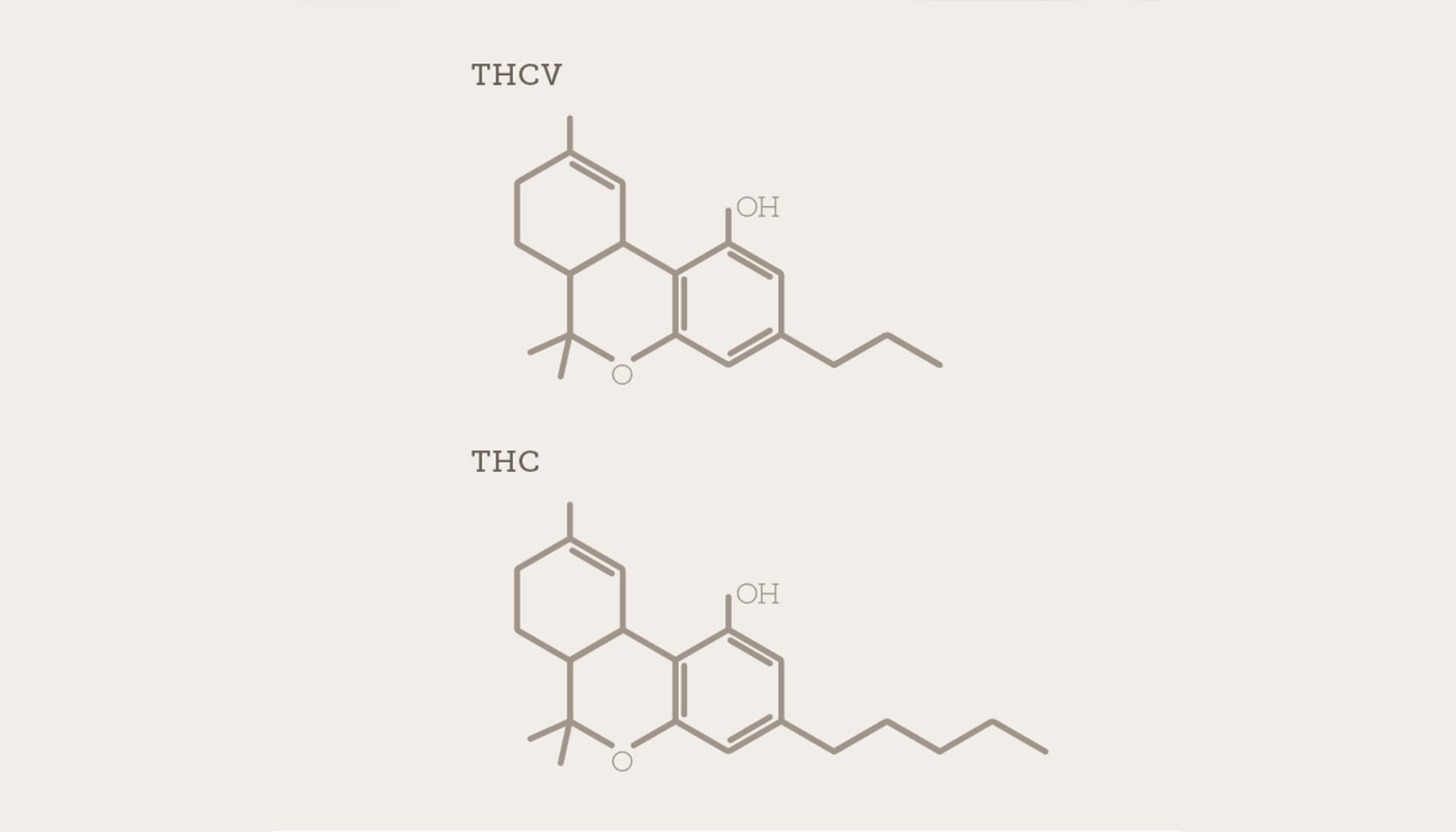Tetrahydrocannabivarin (THCV) is a cannabinoid compound discovered in marijuana and hemp plants. It's chemically similar to tetrahydrocannabinol (THC) but with some essential differences. Here's whatever you need to understand about THCV including the risks, benefits, differences, and similarities with other types of THC and more. What Is THCV? THCV is a less common cannabinoid found in some pressures of marijuana, specifically African sativa.
 The Therapeutic Value of THCV • truPhys
The Therapeutic Value of THCV • truPhys
 Tetrahydrocannabivarin - Wikipedia
Tetrahydrocannabivarin - Wikipedia
 THCV - Cresco Labs
THCV - Cresco Labs
THCV has a 3-carbon side chain rather than THC's 5-carbon side chain. This difference is subtle, however it has an obvious effect on the impact profile. THCV is somewhat psychoactive however just about and about. What Does THCV Seem like? THCV has a strong energy-boosting part to it, which makes it particularly popular amongst trainees and professional athletes.
In the United States, THCV guideline is nuanced. THCV is not a Schedule I Drug, however marijuana extracts are making it rather uncertain what the federal position is on THCV. The 2018 Farm Bill specifies that hemp plants and all derivatives of the plants are legal on a federal level, a lot of companies comply with this law and still offer THCV to customers by only extracting the compound from hemp plants.
If THCV is considered a THC analog, it might be managed in the future by the exact same rules as THC under the Federal Analog Act. This act states that any substance that shares a comparable molecular profile as a recognized restricted compound it's consisted of in the same drug Schedule category.
What Are the Results of THCV? Supporters of THCV report that it produces an extreme burst of energy and makes them feel euphoric without the mental cloudiness triggered by THC. The effects are extremely moderate compared to THC. The results are almost specifically cognitive yet in some way have extremely little effect on headspace.
2. THCV & Hunger Some THCV users claim that it curbs their hunger. This is a typical impact of other focus-enhancing compounds. It's as though THCV removes the distraction of other physical processes (like hunger) in order to maintain resources and attention to cognitive jobs instead. How Does THCV Work? Cannabinoids produce biological results in the human body by interacting with endocannabinoid receptors.
CB1 receptors lie in the nerve system and engage with neurotransmitters in the brain to produce mind-altering effects. Interaction with CB1 sites is what offers some cannabinoids like THC their psychoactivity. THCV is a bit difficult to understand because it's mainly a CB1 antagonist, suggesting it has the opposite result as THC.
While scientists are still looking for to comprehend this procedure, it appears THCV has the ability to obstruct the effects of CB1 in low dosages and stimulate them in high dosages. CB2 receptors are discovered primarily in the body immune system. THCV is a partial agonist of CB2, however the impacts of this partial activity aren't well-known, and it apparently has no discernible effect on THCV users' experience.
As pointed out in the previous area, THCV is a CB1 antagonist in low dosages which is the specific opposite result of delta 8 and delta 9 THC. This could suggest that THCV neutralizes a few of the psychoactive impacts of THC. This impact could describe why individuals who use THCV feel so clear-headed particularly compared to the well-known "fogginess" induced by delta 9 THC.